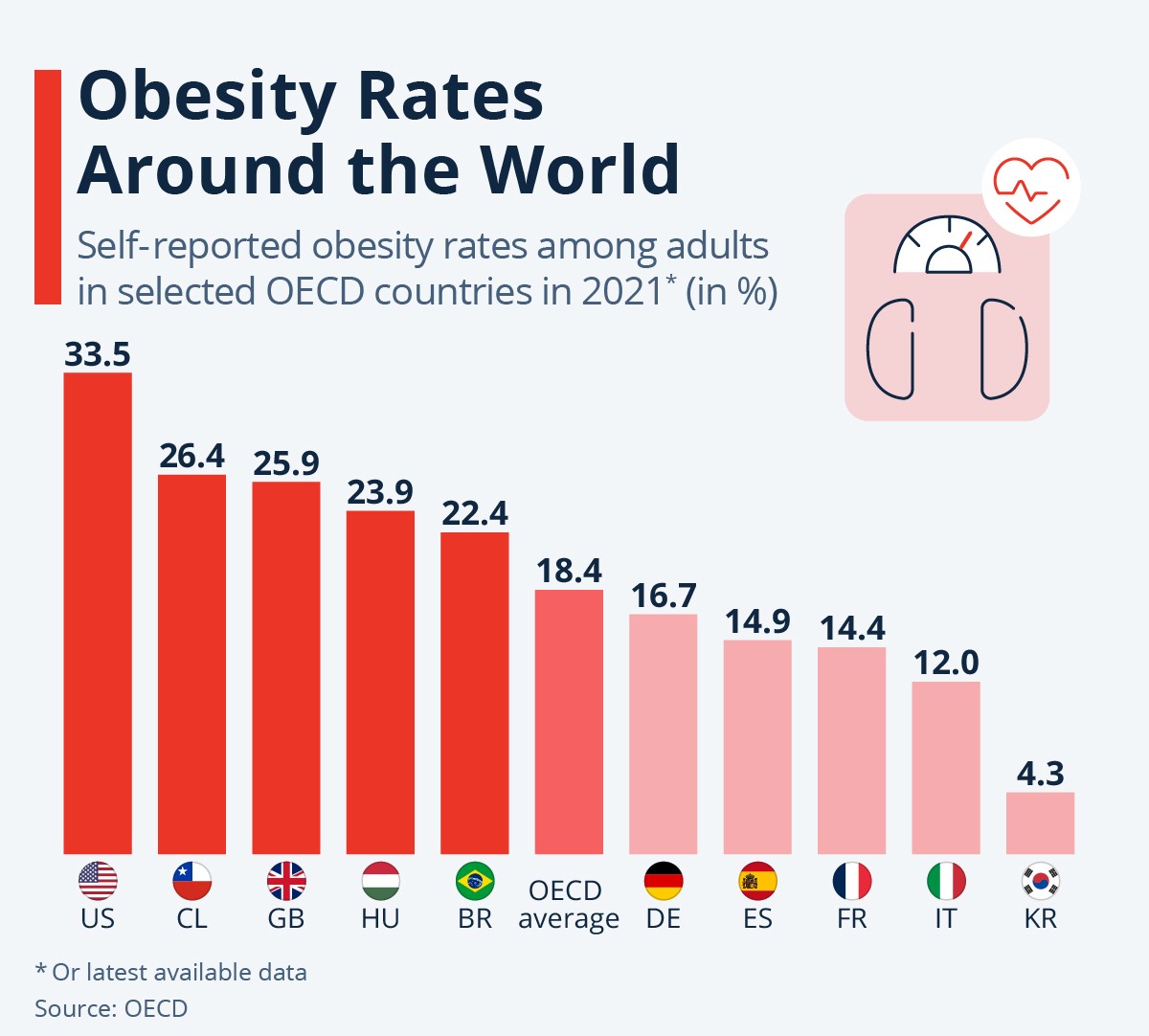Health
Obesity Rates Around the World: A Global Health Concern

Highlights
- OECD data reveals alarming global obesity rates, with over half of adults in many countries overweight or obese.
- Obesity prevalence is particularly high in the United States, Chile, and the United Kingdom.
- Korea boasts the lowest obesity rate among the countries studied, with only 4.3 percent falling into this category.
- Men are consistently more likely to be overweight or obese across all countries studied.
- The World Health Organization defines a BMI over 25 as overweight and over 30 as obese.
- Obesity is linked to serious health issues such as type 2 diabetes, cardiovascular diseases, and cancers.
- Misconceptions persist around obesity, often attributing it solely to poor lifestyle choices.
- Genetic predisposition and environmental factors also play significant roles in obesity rates.
- Tackling obesity requires a multifaceted approach including education, policy reform, and societal change.
In the modern era, obesity has emerged as a pressing global health issue, with profound implications for individuals and societies alike. Recent data from OECD countries shed light on the alarming prevalence of overweight and obesity, revealing a significant challenge that spans continents and cultures.
In 2021, the latest available data indicates that more than half of adults in most OECD countries who self-reported weight data were overweight or obese. Shockingly, nearly one in five adults fell into the category of obesity. The United States, known for its obesity epidemic, reported just over a third of its adult population as obese. Similarly, high rates were observed in countries like Chile and the United Kingdom, where obesity rates hovered just above one in four adults. In stark contrast, Korea boasted the lowest obesity rate among the countries studied, with only 4.3 percent of its population falling into this category.

Obesity Rates Around the World: A Global Health Concern| Source: Statista(latest available data)
Digging deeper into the data, a noticeable trend emerges: men are consistently more likely to be overweight or obese across all countries studied. This disparity is particularly striking in countries like Germany, Luxembourg, and the Czech Republic, where the difference in obesity rates between men and women ranges between 19 to 20 percentage points.
The World Health Organization provides a crucial benchmark for assessing obesity, defining a body mass index (BMI) over 25 as overweight and over 30 as obese. Beyond its impact on physical appearance, obesity is intricately linked to a myriad of health issues, including type 2 diabetes, cardiovascular diseases, and several common cancers. Despite increasing awareness surrounding the topic, obesity remains shrouded in misconceptions. While poor lifestyle choices undoubtedly play a role, genetic predisposition and environmental factors also significantly influence obesity rates.
As we navigate the complexities of the modern world, tackling the obesity epidemic requires a multifaceted approach that encompasses education, policy reform, and societal change. By addressing the root causes and fostering a culture of health and well-being, we can collectively combat this global health challenge and pave the way towards a healthier future for generations to come.




















































